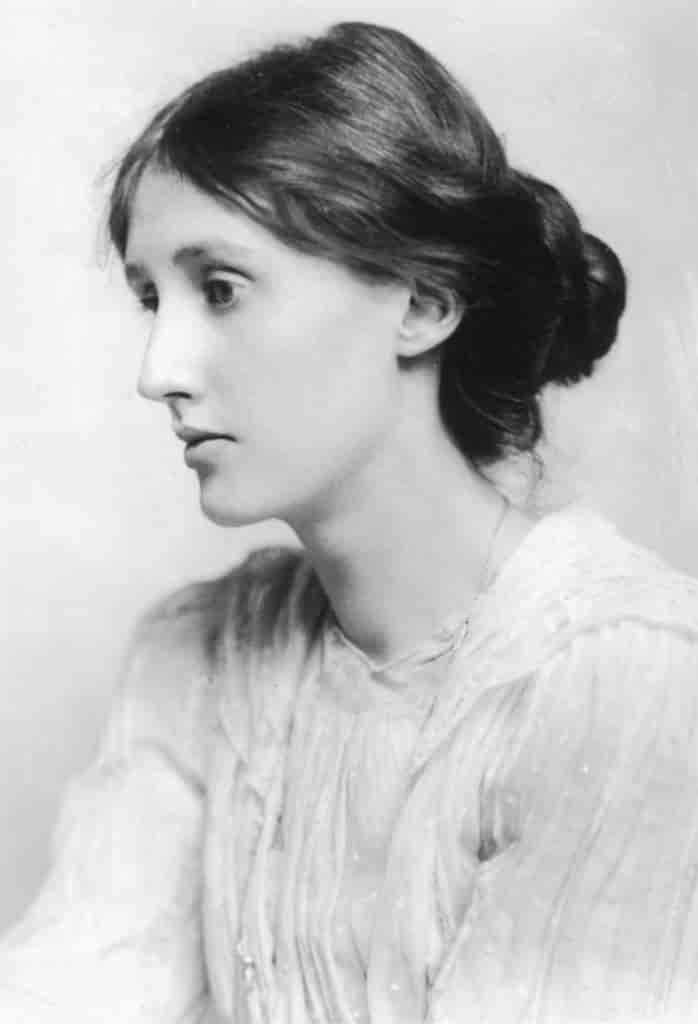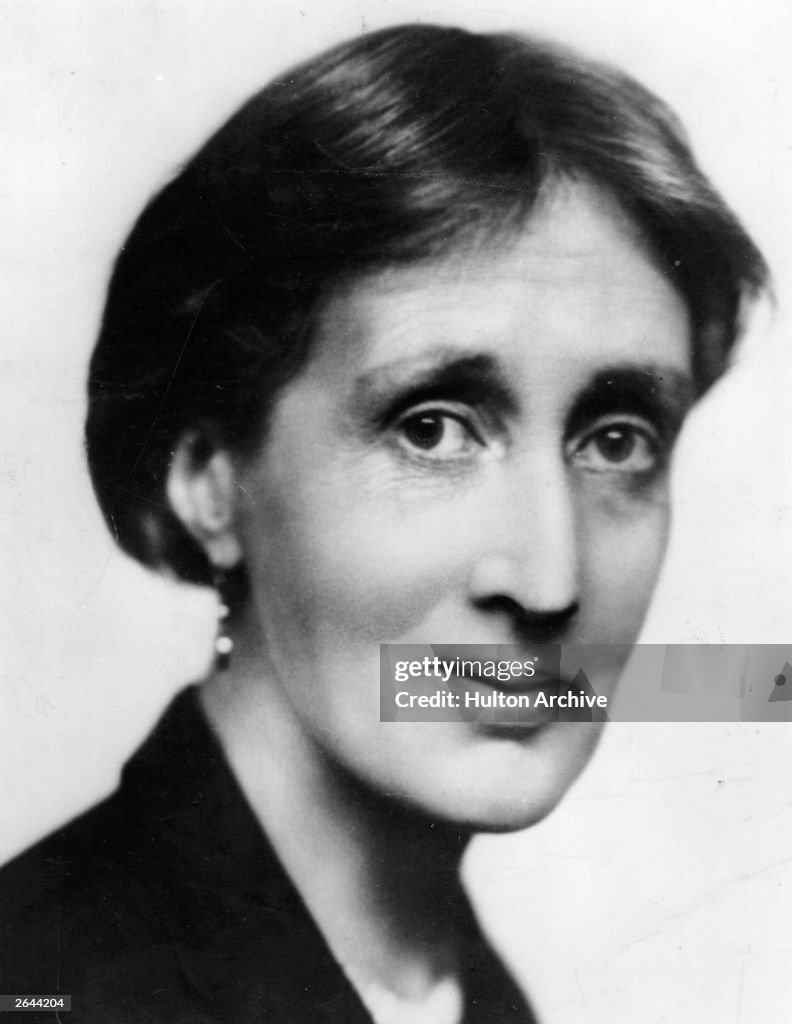Virginia Woolf - A Literary Figure's Impact
There's something truly special about writers who come along and, in a way, completely shift how we think about stories and words. Virginia Woolf, whose birth name was Adeline Virginia Stephen, was very much one of those rare talents. She wasn't just putting words on paper; she was, you know, really pushing the boundaries of what literature could be, helping to create entirely new paths for others to follow in the way narratives were shaped and shared. It's quite something to consider how her ideas, her unique approach, still resonate with us today, offering a fresh perspective on the human experience.
Born in London in 1882, Virginia Woolf’s early life experiences and the people around her played a big part in making her the influential writer she became. Her background, in some respects, provides a lot of insight into the very particular way she saw the world and chose to put it into her books. She lived at a time when things were changing quite a bit, and her writing, you know, seems to capture that sense of movement and transformation.
Virginia Woolf, you see, stands as a truly significant person in the world of modern writing. She's known for her works that really changed the face of English literature in the early part of the 20th century. Her writing style was, to be honest, quite revolutionary, and her views on women's roles were very forward-thinking for her time, making her a voice that still speaks volumes to us now.
Table of Contents
- Who Was Virginia Woolf - A Brief Biography?
- What Shaped Virginia Woolf's Early Life?
- How Did Virginia Woolf Change Writing?
- Exploring Virginia Woolf's Remarkable Works
- The Bloomsbury Group and Virginia Woolf
- Virginia Woolf's Writing Style - What Made It Special?
- Virginia Woolf - A Voice for Feminism
- A Look at Virginia Woolf's Lasting Influence
Who Was Virginia Woolf - A Brief Biography?
Virginia Woolf, whose full birth name was Adeline Virginia Stephen, was a really important English writer. She was born in London on January 25, 1882, and she passed away on March 28, 1941, near Rodmell, Sussex. She's widely thought of as one of England's most distinguished writers from the middle part of the twentieth century, which, you know, says a lot about her standing. Her books, in a way, took a different path from what was typical, often not following a straight timeline, which was pretty new for the time.
She was a very productive writer, actually, always working on something new. Her way of writing, which we call modernist, kept changing with each book she brought out. This shows how she was constantly trying out different things and not sticking to just one method. She wasn't afraid to experiment, which is, honestly, what makes her work so interesting to read even now. We can, for example, see how her approach shifted and grew over the years, making each piece a distinct experience.
Personal Details and Biographical Information for Virginia Woolf
Here's a quick look at some key facts about Virginia Woolf:
| Full Name | Adeline Virginia Stephen Woolf |
| Born | January 25, 1882, London, England |
| Died | March 28, 1941, near Rodmell, Sussex |
| Nationality | English |
| Occupation | Novelist, Critic, Essayist |
| Known For | Modernist literature, pioneering feminist texts, nonlinear narrative approaches |
What Shaped Virginia Woolf's Early Life?
Virginia Woolf, who became a truly towering person in modern writing, was, you know, deeply influenced by the things she experienced when she was younger and by the people around her. It’s almost like her early surroundings and connections laid the groundwork for the unique way she would later express herself through her stories. To really get a feel for her very particular approach to writing, looking at her background, in some respects, gives us a lot of clues.
Her life, from the very beginning, was marked by both difficulties and a strong drive to create. These struggles, it seems, often fueled her artistic output, pushing her to explore complex human feelings and societal norms in her books. The blend of these personal challenges with her incredible creative energy is, honestly, what makes her work so powerful and, you know, so lasting. It's clear that her personal journey was deeply tied to her artistic one, shaping the voice we hear in her pages.
How Did Virginia Woolf Change Writing?
Virginia Woolf truly transformed English literature in the early part of the 20th century. She did this through her writing approach, which was, you know, quite groundbreaking for its time, and also through her perspectives on women's roles in society. She didn't just write stories; she changed how stories were told and what they could be about. Her novels, for example, can perhaps best be thought of as pieces that broke away from traditional ways of telling a story.
Her works often didn't follow a simple, straight path from beginning to end. Instead, they would, you know, move around in time and thought, giving readers a much richer and more complex view of the characters' inner worlds. This nonlinear way of approaching a story was, honestly, quite a bold move and helped to create a new kind of reading experience. It was like she was inviting you inside someone's head, letting you experience thoughts and feelings as they happened, rather than just describing them from the outside.
Exploring Virginia Woolf's Remarkable Works
When we look at the really great literary works of Virginia Woolf, from her well-known book 'Mrs Dalloway' to 'To the Lighthouse,' we can, you know, really discover her very particular impact on modern writing. These books are not just stories; they are, in a way, explorations of the human mind and the subtle details of daily existence. She had a way of getting right into the thoughts and feelings of her characters, which was, honestly, quite revolutionary.
She also wrote books that were very important for women's rights, such as 'A Room of One's Own' and 'Three Guineas.' These pieces were, you know, really ahead of their time, putting forward ideas about women's need for independence and their own space to create. Her work, in some respects, gave a voice to thoughts and feelings that many women had but hadn't seen expressed in such a clear and powerful way before. It's almost like she was laying down a foundation for future discussions about equality.
The Bloomsbury Group and Virginia Woolf
Virginia Woolf was not just a standout writer on her own; she was also a key person in a group of artists and thinkers known as the Bloomsbury Group. This group, you know, was made up of British authors and essayists, and they were very prominent in the English modernist movement. Being part of this circle meant she was surrounded by people who were also pushing boundaries in their own fields, which, in a way, must have fueled her own creative spirit.
The Bloomsbury Group was known for its progressive ideas and its rejection of Victorian-era traditions. This environment, you see, allowed Virginia Woolf to really explore her own thoughts and develop her unique writing approach without feeling constrained by older ways of thinking. It's almost like being in that group gave her the freedom to be truly innovative and, honestly, to be herself as an artist. They discussed everything, from art to society, and these conversations, in some respects, likely found their way into her books.
Virginia Woolf's Writing Style - What Made It Special?
Virginia Woolf's writing approach was, in a word, transformative. She didn't just tell a story; she, you know, invited readers into the very thoughts and feelings of her characters. Her books can perhaps best be described as works that really focused on the inner life, the stream of consciousness, rather than just external events. This was a pretty bold move for the time, and it set her apart from many other writers.
She was, honestly, a very prolific writer, always producing new works, and what's interesting is that her modernist style kept changing with each new book. She didn't settle on one fixed way of writing; instead, she was constantly experimenting, trying out different ways to capture the complexity of human experience. This willingness to evolve and, you know, to try out new things is a big part of what makes her work so enduring and so fascinating to study even today. We can, for example, read detailed notes on her writing style and see how it developed over time.
Virginia Woolf - A Voice for Feminism
Beyond her literary innovations, Virginia Woolf was, you know, a pioneering voice for women's rights. Her texts, like 'A Room of One's Own' and 'Three Guineas,' are, in some respects, foundational pieces of feminist thought. She openly discussed the challenges women faced in a society that often limited their opportunities, especially in creative and intellectual pursuits. It's almost like she was giving language to the unspoken realities of many women's lives.
These writings were not just academic discussions; they were, honestly, passionate arguments for women's independence and their right to have their own space, both literally and figuratively, to think and create. She made a strong case for why women needed financial independence and privacy to truly flourish as artists and thinkers. Her work, you know, helped to shape conversations about gender equality that continue to this day, showing just how ahead of her time she truly was.
A Look at Virginia Woolf's Lasting Influence
Virginia Woolf is, arguably, one of the greatest English writers of the modernist period, and her impact continues to be felt. Her revolutionary writing style and her forward-thinking feminist ideas have, you know, left an indelible mark on literature and society. She didn't just write; she really changed the way we think about novels and the stories they can tell. It's almost like she opened up a whole new way of looking at the human mind on the page.
Her books are still widely read and studied, showing just how relevant her insights remain. From 'Mrs Dalloway' to 'To the Lighthouse,' her literary creations continue to draw in readers, offering a unique glimpse into the intricate workings of human consciousness. Her life, marked by both personal struggle and immense creativity, serves as a powerful example of an artist who pushed boundaries and, you know, truly made a difference in the world of letters. We can, for example, find many biographies that explore her childhood, her family life, her achievements, and other interesting facts about her journey.
So, in essence, Virginia Woolf was a literary trailblazer, a writer whose unique impact on modernist literature and feminist advocacy is still celebrated. Her innovative storytelling and her courageous voice for women's rights continue to inspire and challenge readers, proving that her legacy is, you know, truly a lasting one. She was, honestly, a writer who dared to be different, and that's why her work still holds so much power.

Virginia Woolf – Lex

Virginia Woolf Quotes: Remembering Famous 20th-Century Writer On Her

English novelist, critic and essayist Virginia Woolf was born in